
The Free Press

Since Donald Trump’s election in 2016, he has been depicted on-screen many times, but never very well.
Alec Baldwin was inexplicably cast to play him on Saturday Night Live for the entirety of Trump’s presidency. But even if Baldwin had been capable of doing a good Trump impression—he isn’t—an actor is only as good as his script, and SNL writers hate and fear Trump so much they can’t seem to write a joke about him. Which is a great shame, because Baldwin’s replacement, James Austin Johnson, has perfected Trump’s voice, cadence, and mannerisms.
Then there was Our Cartoon President, the animated series co-created by Stephen Colbert that ran on Showtime from 2018 to 2020, and portrayed Trump as bumbling and naive. The show’s comedy was more irreverent than SNL’s, but still catered to its #ResistanceLib audience—it was like Family Guy but just for people who listen to Pod Save America.
Showtime also gave us The Comey Rule, a 2020 miniseries drama about the firing of FBI Director James Comey. It was awful, and not simply because it was predicated on Russiagate conspiracy theories that had been debunked by the Mueller Report a year earlier. Trump, played by a totally miscast Brendan Gleeson in full monster makeup, was portrayed as an embodiment of pure evil, lurking in the shadows, making sinister phone calls, and bullying Comey, played by an endlessly smug Jeff Daniels.
There are other examples, but suffice it to say that for eight years it has seemed as if nobody in television was getting to the heart of Trump—he could be a villain or a buffoon, but nothing else.
But last week, that changed with the release of Ali Abbasi’s film, The Apprentice—which Trump actually tried to block. Ironically, because The Apprentice has done the one thing all previous filmmakers have failed to do: portray Donald Trump as a man. Not a good man, but a real one, a complex character, a human being.
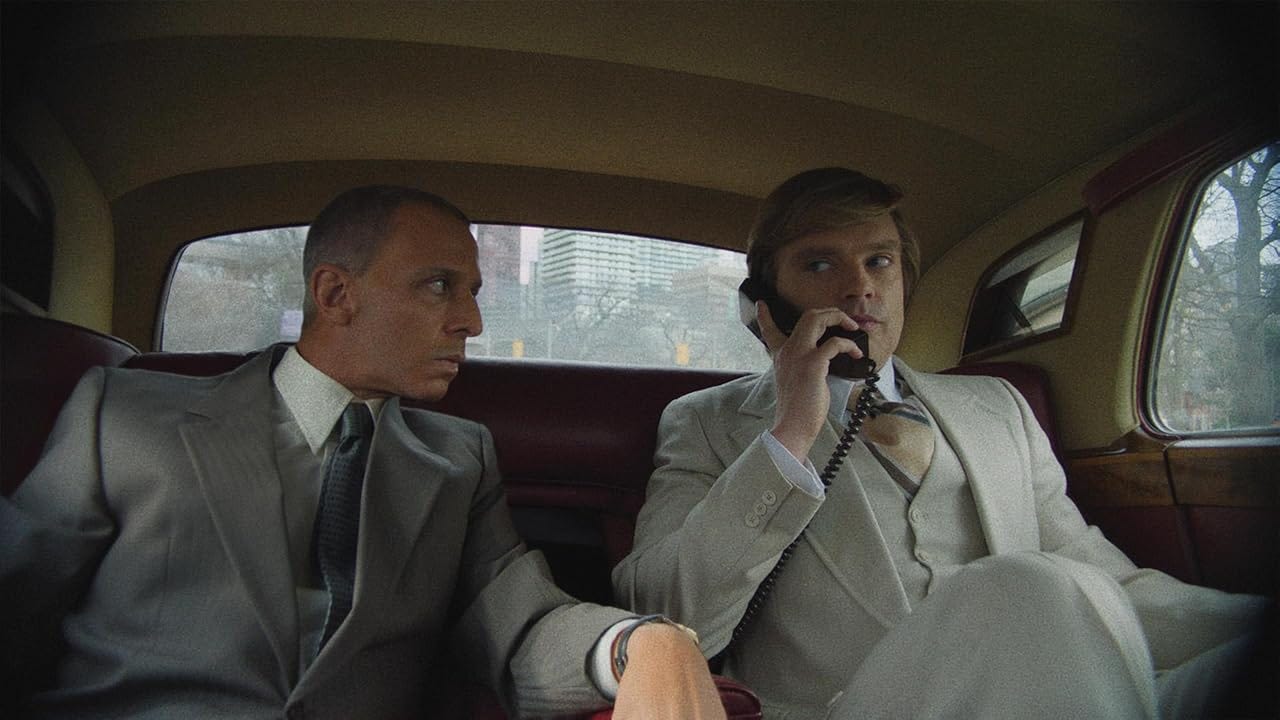
The film revolves around Trump’s relationship with Roy Cohn, the cutthroat lawyer and political operator who came to prominence as Joseph McCarthy’s chief legal counsel during the Second Red Scare. The film begins when the two men meet. The year is 1973, and the federal government is investigating claims that real estate mogul Fred Trump discriminated against black tenants. Fred’s son and employee Donald (Sebastian Stan) is desperately trying to manage the situation. In his moment of crisis, the soft-spoken, insecure young businessman meets Cohn, who advises him to sue the government and gives young Donald “three rules”: Always attack, never admit wrongdoing, and always claim victory.
The two grow increasingly close, with Cohn acting as a sort of surrogate father for the young Trump. As time goes on, Donald internalizes the “three rules,” and his personality slowly transforms into a more bombastic version of Cohn’s. He becomes more ruthless, more arrogant, and crueler—the “killer” Roy told him to be.
He begins to suppress all the aspects of personality which might be conceived as weakness. After his brother dies, he momentarily sobs, before becoming furious at his wife Ivana’s attempts to comfort him. The marriage falls apart, culminating in a controversial rape scene—inspired by allegations made, and later recanted, by Ivana during the couple’s divorce proceedings—which made the Trump campaign threaten legal action. Other events in the film don’t seem to be in dispute. In fact, Roger Stone—a longtime friend of both Trump and Cohn who is briefly depicted in the film—said Jeremy Strong’s portrayal of Cohn was “uncanny in its accuracy.”
But ultimately this is not really a film about Trump or Cohn, it’s about what happens when you suppress your humanity in the pursuit of power. Eventually, even Cohn is horrified by Trump’s cruelty, and tells him so. Trump tells him he “learned from the best.”
The Apprentice is a completely compelling and utterly human story about how power corrupts; it could be about anyone. But, unfortunately, it’s about Trump, which is a shame, because it means most Americans will hate it—either because they love Trump and he comes across as brutish, or because they hate him so much that they can’t bear to watch him portrayed as anything less than a monster.
On Monday, Trump himself described The Apprentice as a “cheap, defamatory, and politically disgusting hatchet job.”
There’s no doubt that Abbasi finds Trump abhorrent, but The Apprentice doesn’t demonize him. People who prefer their caricatures artless dislike it for precisely this reason. For example, a recent op-ed in The Washington Post criticized Stan’s portrayal of Trump like this: “Actors are forever looking for a soul. . . But searching for a soul in Trump is a fool’s errand. Stan goes exploring for a treasure that doesn’t seem to exist.” The critic prefers Gleeson’s superficial portrayal of Trump in The Comey Rule because “Gleeson does not try to humanize Trump anymore than you would humanize the tornadoes in Twisters.”
In other words, a film that portrays Trump raping his ex-wife, released one month before the election, isn’t damning enough, because it gently suggests he might have a soul. If that’s the left’s complaint, the right’s would be that The Apprentice is a hit piece, which is fair. But what a beautiful hit piece it is.
River Page is a reporter for The Free Press. Follow him on X @River_Is_Nice and read his piece “Will Ferrell’s Trans Documentary Is Surprisingly Moving.”
And to support more of our work, become a Free Press subscriber today:

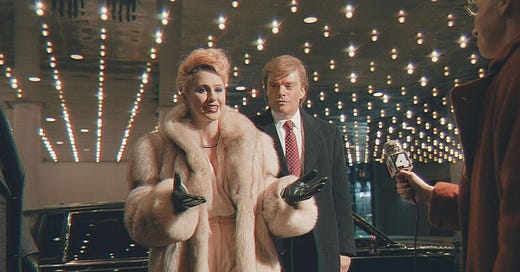




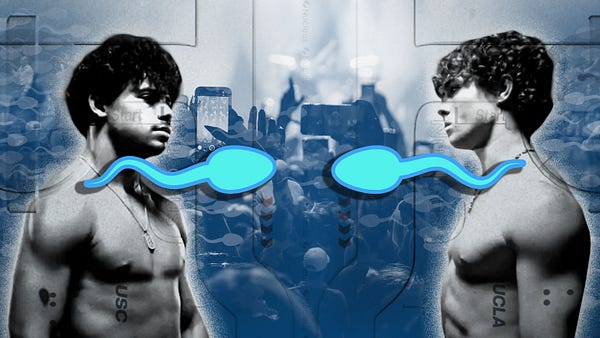


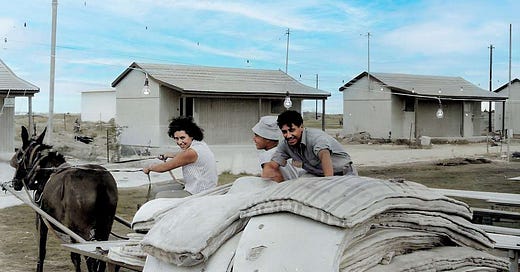
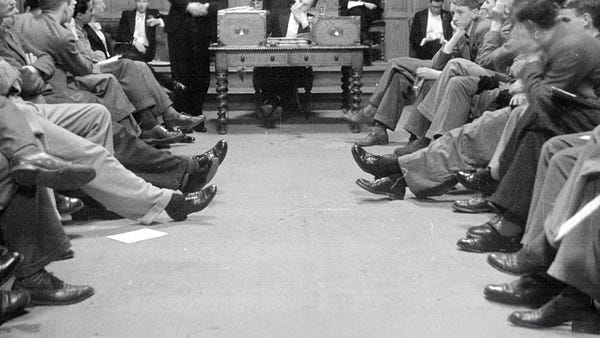

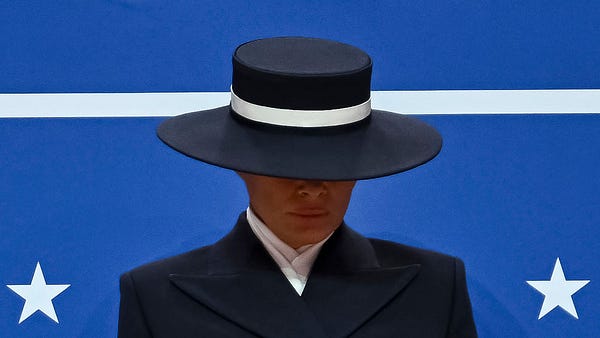

No matter how bad they want to portray him (some of it true, some not), nothing will change the fact that our country was doing better for most of us after Obama, and before Biden/Harris. Let’s get back to that. MAGA
It’s a bit bizarre that there have been so many films about Trump, all apparently designed to convince us that he is a major Threat to Democracy (trademark from the Democrats). I’d say there have been no films about Biden, but “Weekend at Bernie’s” is a pretty good account.